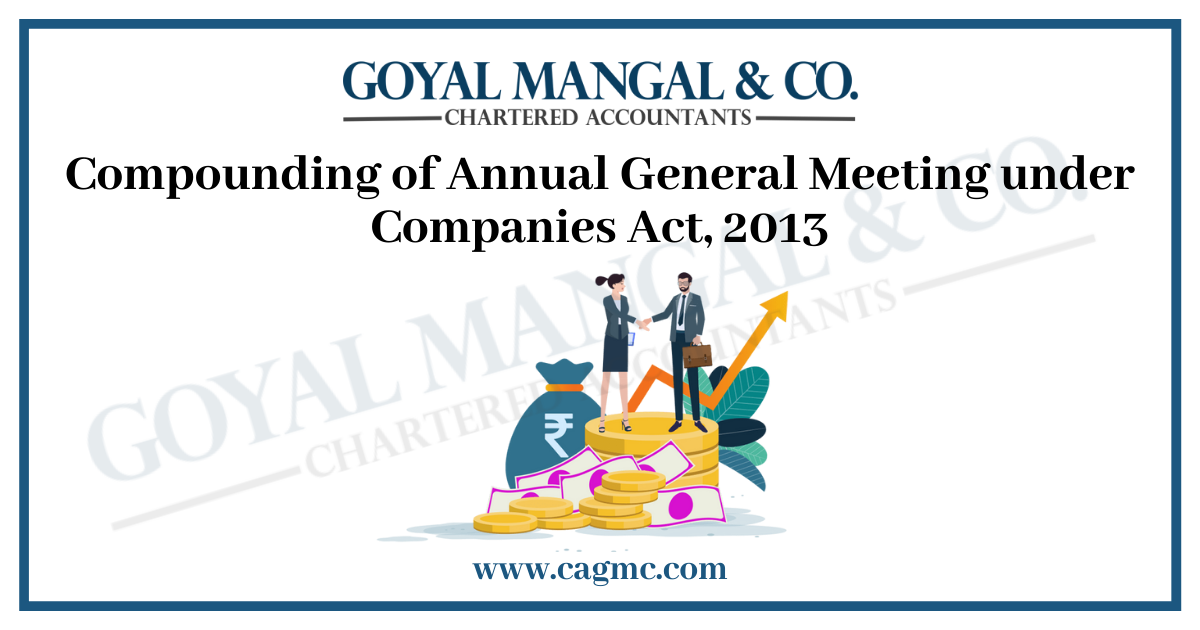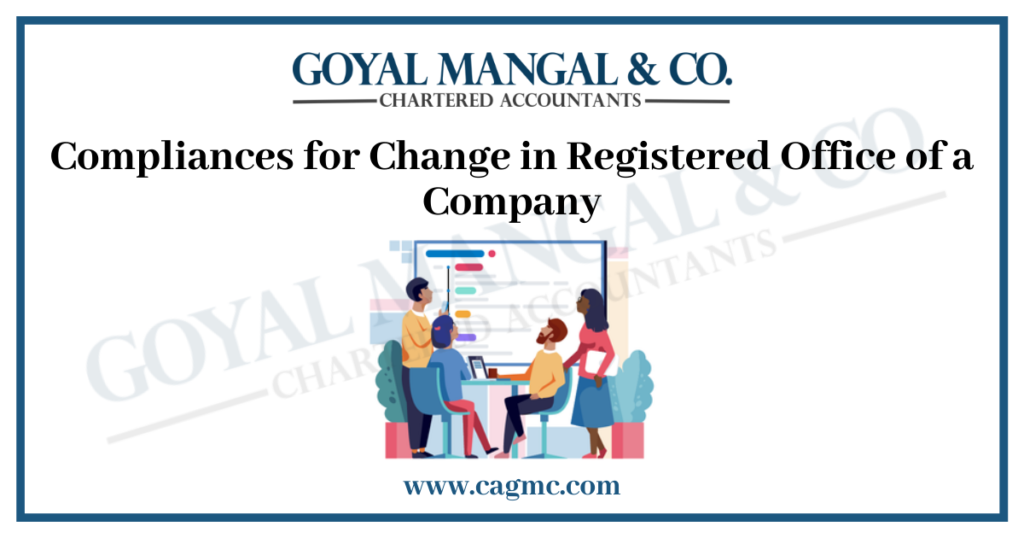
The Annual General Meeting (AGM) is a crucial governance process for an organization’s members. It can provide transparency, provide updates, and allow members to vote on a variety of topics. The Companies Act of 2013 contains provisions for the compounding of annual general meetings (AGMs). A meeting is defined as “a gathering of people for a specific purpose, particularly for formal discussion”. Meetings of the company are known and held in accordance with the provisions of the Companies Act, 2013 and the rules enacted under it. In this blog, we will discuss the Compounding of AGM and other aspects.
What is an Annual General Meeting (AGM)?
An Annual General Meeting (AGM, often known as the annual meeting) is a gathering of an organization’s general membership. Membership associations and corporations with stockholders are examples of these organizations. These meetings may mandate by law or the governing body’s constitution, charter, or by-laws. Meetings are conducted on behalf of the organization or corporation to do business. AGMs are particularly significant for a corporation because of the business that is transacted at those meetings. Further, a review of Sections 96 and 102(2) is necessary for this context. Also, they outline the purpose and type of the business that is to conduct at such meetings.
Time Period for Holding of Annual General Meeting of a Company
According to the Companies Act 2013, each aspiring new company’s Annual General Meeting (AGM) must be:
- Held within 9 months of the end of the first financial year if it is the first AGM.
- In general, AGMs for other firms must held within 6 months after the Financial Year’s end.
- As a result, it is apparent that the convenience is only acquire by firms for their first AGM.
A company can seek an extension if it fails to have its AGM by the deadline. Although, it must do so in writing to the Registrar of Companies.
MCA Department’s Most Recent AGM Announcement
The ministry of corporate affairs has given clarifications about the extension of the annual general meeting for the financial year that expires on March 31, 2020, as per the Companies Act 2013. According to the ministry, organizations that are unable to have an annual general meeting in the traditional sense can do so using any audiovisual or video conferencing technology. There will also be numerous relaxations for all corporations in terms of annual general meetings and stakeholders.
- On or before June 30, 2022, the MCA department has issued the circular on the AGM meeting via video conference and other audio-visual methods.
- Until June 30, 2022, the MCA department has confirm that the EGMs will conduct through video conference and other audio-visual means.
- The Ministry of Corporate Affairs (MCA) has offered a significant relief to nearly 12 lakh corporations today by extending the deadline for having Annual General Meetings from September 30th to December 31st.
Can the Annual General Meeting (AGM) be extended?
Any business, excluding OPC, can apply for an extension with the Registrar of Companies for their Annual General Meeting (AGM). Extensions to the Annual General Meeting may grant for the following specific circumstances, which categorise into valid and invalid causes:
- The absence of a quorum at the Annual General Meeting is not a valid excuse.
- A valid reason for the Statutory Auditor’s abrupt retirement from the Company without presenting the audited balance sheet.
- Natural calamity prevented the holding of the Annual General Meeting, which is a valid reason.
- Annual Accounts Aren’t Available – This Isn’t a Reason
- A valid reason for a reduction in the number of directors required by the Act.
- A Valid Reason for Confiscation of Books of Accounts by the Income Tax Department, the Serious and Fraud Investigation Cell, or any other government official
The Legal Ramifications of failing to hold an AGM
If a company, whether private or public, with or without share capital, limited or unlimited, fails to comply with the provisions of Section 96 or fails to hold its AGM within the prescribed time, the Tribunal, under Section 97 of the Act of Companies Act, 2013, authorize to call or direct the calling of the company’s AGM on the application of any member of the company.
Furthermore, If the company fails to hold a meeting in accordance with Section 96, Section 97, or Section 98, or fails to comply with any directions of the Tribunal, the company and every officer of the company who is in default shall be fines up to one lakh rupees, plus a further fine up to five thousand rupees for each day the default continues.
Compounding of Offence for not Holding AGM under Companies Act, 2013
- The term “compounding of offence for Annual General Meeting” refers to a system in which a defaulting firm resolves its debt by paying the money rather than facing prosecution, thereby avoiding lengthy litigation.
- If the Annual General Meeting is not conduct by the due date without seeking for an extension with the Registrar of Companies, the company will have to apply to the National Company Law Tribunal for compounding of the offence (NCLT). Compounding of offences is address in Section 441 of the Companies Act of 2013.
- Fines and penalties can only impose by the Regional Director or the National Company Law Tribunal for offences that are punishable by fines and penalties (NCLT).
ROC’s Post-Compounding Requirements
The ROC is necessary to undertake the following under Section 441 of the Companies Act, 2013 after Compounding of Annual General Meeting:
- When an offence is compound after the institution of a prosecution, the Registrar must bring the compounding to the attention of the Court in writing.
- In cases where the prosecution is still pending, the firm or its official in respect to whom the offence is compound shall release upon receipt of such notice of the compounding of the offence.
Conclusion
As we all know, every firm is necessary to call at least one shareholder meeting per year. Annual general meetings (AGMs) are also crucial because they give transparency, allow shareholders to participate, and hold management accountable. Furthermore, if a corporation fails to hold this meeting, there will be implications accordingly.


